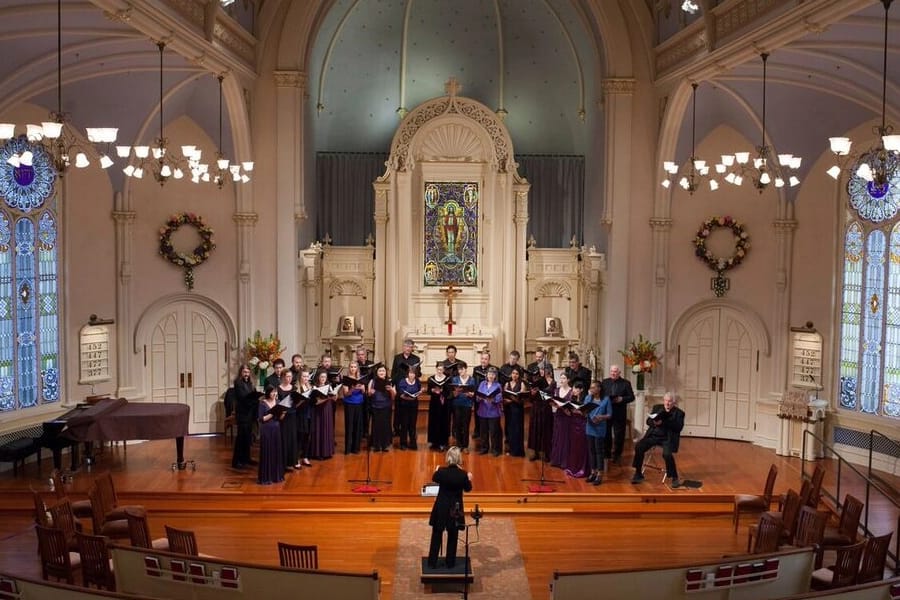
articles / Pop Culture
Bach, Brahms, Mahler, and… Death

Along with classic a cappella works by German masters on this weekend’s concerts by Sacred & Profane is a piece by Hugo Distler called Totentanz or “Dance of the Dead.” It punctuates short choral works with a conversation between Death (played by Paul Finocciarro, an actor from A.C.T.) and various victims he’s about to claim. Artistic Director and conductor Rebecca Petra Naomi Seeman calls the program “Music of the Soul”.
There’s more information at the Sacred & Profane website.
This is the choir’s 40th anniversary season, and Seeman says they started with the kind of program they frequently do, with an over-arching theme: “In December, we did a secular program of all stars, and night sky, and northern lights, and that was hugely successful. And then we decided to sort of veer 180 for the concert that we’re singing this coming weekend, and perform a really traditional program of mostly canonic, well-known German sacred repertoire… But with a little bit a twist on it as well.” That twist shows up in several of the works – they begin with music by Bach that only came to light comparatively recently. “This is a four-part motet called ‘Sei Lob und Preis’ that was sandwiched in the middle of a three movement Telemann motet. So for centuries it was assumed to be a Telemann piece, until in the 1980s a scholar identified it as actually being a Bach motet… It wasn’t that uncommon for short little pieces to get tucked into other works, and then be assumed to be by that other composer. Misattributions are relatively common.” Then there’s Brahms’ ‘Warum ist das Licht gegeben,’ which Seeman says “many people consider to be Brahms’ really greatest, most significant work for a cappella chamber choir… One of my favorite pieces, it’s a ‘Desert Island’ piece for me, so I’m thrilled to be singing that.” Then a re-orchestrated Mahler, with Clytus Gottwald’s arrangement of ‘Ich bin der Welt abhanden gekommen,’ from the Ruckertlieder. “He has a 16 voice ensemble that he arranges lots of major German works for… [This] is usually sung by baritone or mezzo and orchestra, and Gottwald put the whole thing into a 16 part a cappella chamber choir.” The final piece is the 1932 Totentanz by Distler. In turn, 12 conversations between death and his victims separate 14 musical ‘aphorisms.’






